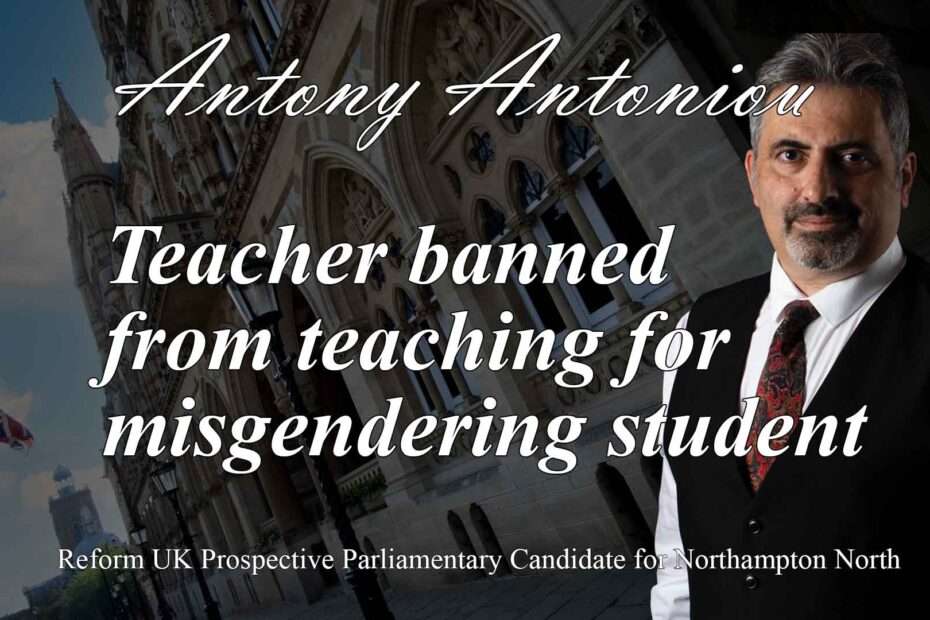Teacher Banned from Teaching for Misgendering Student
A Case of Controversy
In a recent development that has sparked considerable debate and raised concerns over freedom of speech and the rights of educators, a teacher has lost his appeal against unfair dismissal for misgendering a student. Kevin Liser, formerly of New College Swindon, found himself embroiled in a controversy after referring to a student by an incorrect name and misgendering them. However, it wasn’t just this incident that led to his dismissal; Liser also faced allegations of refusing to acknowledge students who had chosen to undergo hormonal treatment for gender transition. Moreover, he went as far as equating the social transitioning of a child to the illegal act of performing female genital mutilation.
The repercussions of these actions were severe. Liser has been banned from teaching ever again, with an entry made on the Disclosure and Barring Service (DBS) register. This decision not only marks the end of his teaching career but also casts a shadow over his prospects for future employment, as the entry on the DBS register will likely affect his ability to secure various job opportunities.
The implications of this case extend beyond the individual involved. At its core, it raises questions about the boundaries of free speech within educational institutions and society at large. Liser’s supporters argue that his dismissal sets a dangerous precedent, effectively stifling dissenting opinions and imposing conformity to particular ideological viewpoints.
Adding fuel to the fire are broader societal trends, particularly in the realm of legislation concerning hate speech and discrimination. Recent initiatives, such as the introduction of stringent hate crime laws in Scotland by Hamza Yusf, have heightened concerns about the erosion of civil liberties. Yusf’s directives, which include specialized police training in monitoring social media and targeting individuals deemed to be propagating hate speech, have been met with criticism from those who view them as infringing upon freedom of expression.
Critics of such measures warn of a slippery slope, whereby the definition of hate speech is expanded to encompass dissenting opinions on various social and political issues. There are fears that legitimate discourse and debate could be suppressed under the guise of protecting marginalized communities. The specter of censorship looms large, with dissenting voices being marginalized and silenced in the name of political correctness.
Furthermore, there is growing apprehension about the politicization of certain issues and the weaponization of identity politics for partisan gain. Allegations of selective outrage and hypocrisy abound, with accusations that certain groups are afforded preferential treatment while others are vilified and ostracized for expressing opposing views.
Amidst these controversies, there is a pressing need for a nuanced and balanced approach that upholds the principles of free speech while also safeguarding the rights and dignity of all individuals. It is imperative to foster an environment where differing perspectives can coexist peacefully, without resorting to censorship or suppression of dissent.
Looking ahead, the case of Kevin Liser serves as a sobering reminder of the complexities inherent in navigating the delicate balance between freedom of expression and respect for diversity. As debates rage on and tensions simmer, it is incumbent upon policymakers, educators, and society as a whole to engage in constructive dialogue and strive towards solutions that uphold the values of tolerance, inclusivity, and mutual respect. Only through such concerted efforts can we hope to forge a more equitable and harmonious future for all.

